Farm & Ranch
Well-owner training set for Jan. 28 in Seguin
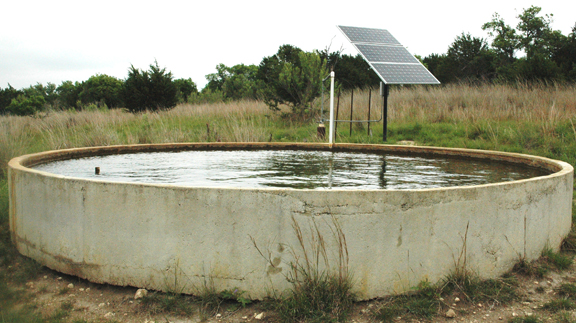
By: Paul Schattenberg
SEGUIN — Anyone interested in private water well management is invited to a Texas Well Owner Network training Jan. 28 in Seguin. The workshop is being offered to area private water well owners through collaboration with the Geronimo and Alligator Creeks Partnership.
The training, which is free and open to the public, will be from 8:30 a.m.–3:30 p.m. at the Big Red Barn, 390 Cordova Road, said Drew Gholson, Texas A&M AgriLife Extension Service program specialist and network coordinator in College Station.
“The TWON program is for Texas residents who depend on household wells for their water needs, so they can learn about improving and protecting their community water resources,” Gholson said. “The program was established to help well owners become familiar with Texas groundwater resources, septic system maintenance, well maintenance and construction, and water quality and treatment.”
He said participants may bring well-water samples to the training for screening. The cost is $12 per sample, with payment due when samples are turned in.
“We invite private well owners to bring in a water sample to be screened for nitrates, total dissolved solids and bacteria,” Gholson said.
Well owners who would like to have their water sampled can pick up two sample containers from the AgriLife Extension offices in Guadalupe or Comal counties.
Bringing water samples to the training is not required, Gholson said, but those wanting to have water samples analyzed must attend the training.
Space is limited, so attendees are requested to register at http://twon.tamu.edu/training or by calling 979-845-1461 as soon as possible.
The training is one of 30 statewide conducted through the Preventing Water Quality Contamination through the Texas Well Owner Network project. Other scheduled trainings include Navasota, San Antonio and Round Rock.
“The core content of this program is the same as other trainings, but the information is tailored to local water quality issues and aquifers,” he said.
Gholson said more than 1 million private water wells in Texas provide water to citizens in rural areas and increasingly to those living on small acreages at the growing rural-urban interface.
“Private well owners are independently responsible for monitoring the quality of their wells,” he said. “They are responsible for ensuring their drinking water is safe. This means they are responsible for all aspects of the water system – testing, inspecting, maintaining – and this training will help private well owners to understand and care for their wells.”
Funding for the Texas Well Owner Network is through a Clean Water Act nonpoint source grant provided by the Texas State Soil and Water Conservation Board and the U.S. Environmental Protection Agency. The project is managed by the Texas Water Resources Institute, part of Texas A&M AgriLife Research, the AgriLife Extension and the College of Agriculture and Life Sciences at Texas A&M University.
-30-
Farm & Ranch
Managing Show Cattle Through The Winter

By Heather Welper
Husband and wife duo, Heather and Calvin Welper, are the Co-Owners and Operators or Two C Livestock, located in Valley View, Texas.
The pair’s operation has a show cattle focus where they raise and sell purebred heifers of all breeds and club calf Hereford steers.
When it comes to show cattle, the Welpers know a thing or two including how to prepare for the cold winter months and the Texas major show season run.
To read more, pick up a copy of the November edition of North Texas Farm & Ranch magazine, available digitally and in print. To subscribe by mail, call 940-872-5922.
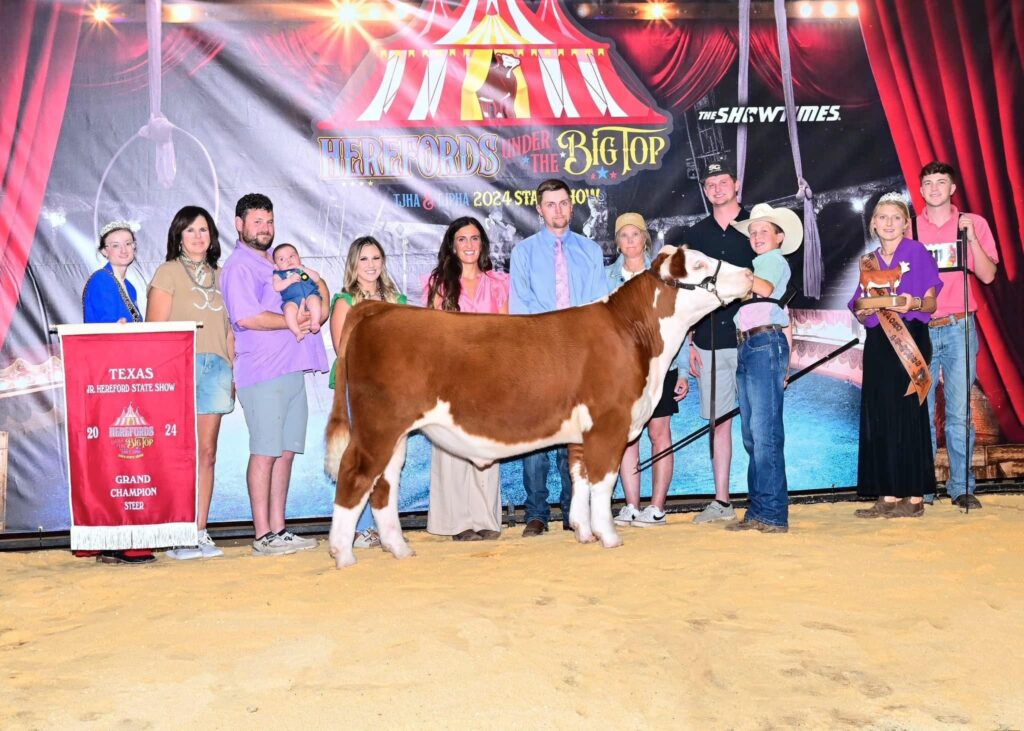
Farm & Ranch
Double M Ranch & Rescue

By Hannah Claxton, Editor
As the sun rises each day, so do the dozens of mouths that Meghan McGovern is responsible for getting fed. Rather than the sounds of a rooster crowing, McGovern hears the bellows and bleats of a variety of exotic deer, the chortle of kangaroos, the grunts of water buffaloes, and the chirps of a lemur.
Nestled against the banks of the Red River, the Double M Ranch and Rescue, with its high game fences and deer sprinkling the landscape,s its in stark contrast to the surrounding ranches.
“Having deer is kind of like eating potato chips- you can never actually have just one,” said McGovern with a laugh.
McGovern has several herds to take care of- fallow deer, axis deer, water buffalo, goats, and bison. In smaller numbers, there’s also a few kangaroos, a lemur, a potbelly pig, a pair of zebras, a watusi, and a few horses.
To read more, pick up a copy of the November edition of North Texas Farm & Ranch magazine, available digitally and in print. To subscribe by mail, call 940-872-5922.
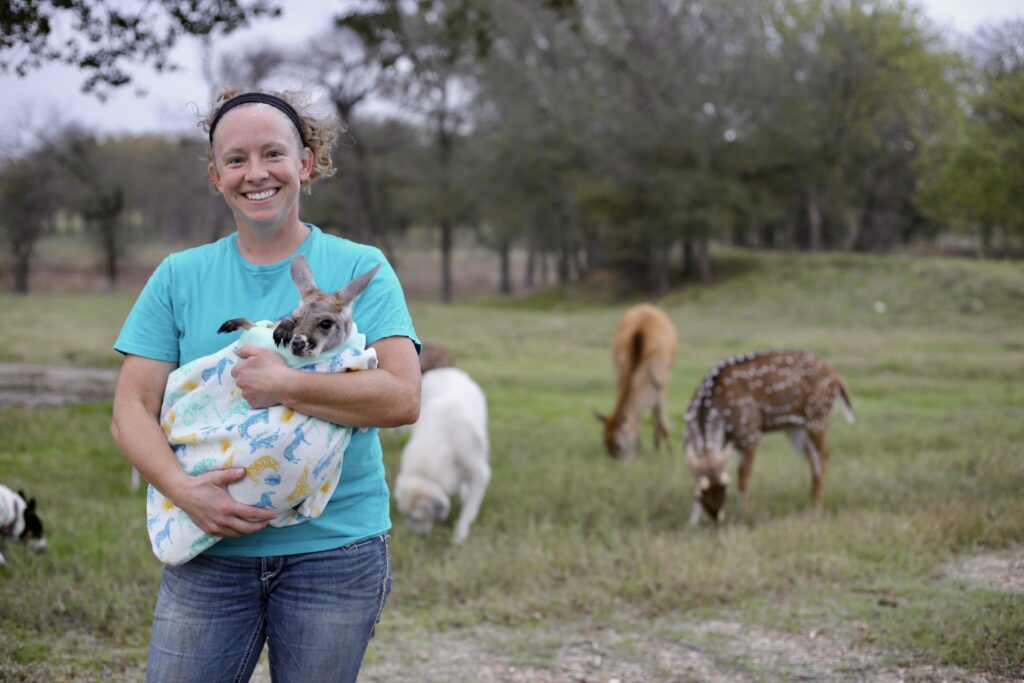
Farm & Ranch
Acorn Toxicity
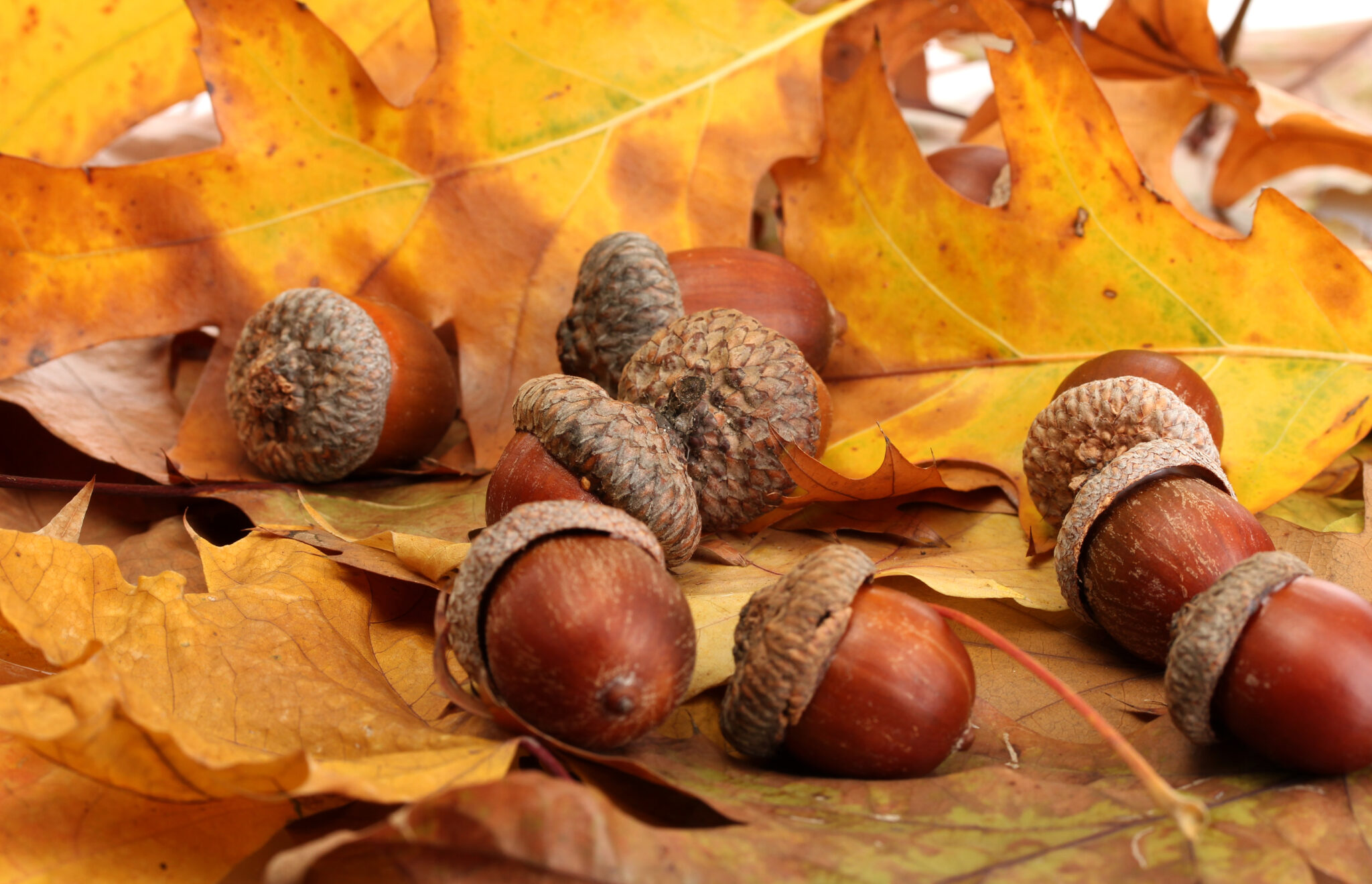
By Barry Whitworth, DVM, MPH
With the prolonged drought, most pastures in Oklahoma end up in poor condition. With the lack of available forage, animals may go in search of alternative foods.
If oak trees are in the pastures, acorns may be a favorite meal for some livestock in the fall. This may result in oak poisoning.
Oak leaves, twigs, buds, and acorns may be toxic to some animals when consumed.
To read more, pick up a copy of the November edition of North Texas Farm & Ranch magazine, available digitally and in print. To subscribe by mail, call 940-872-5922.
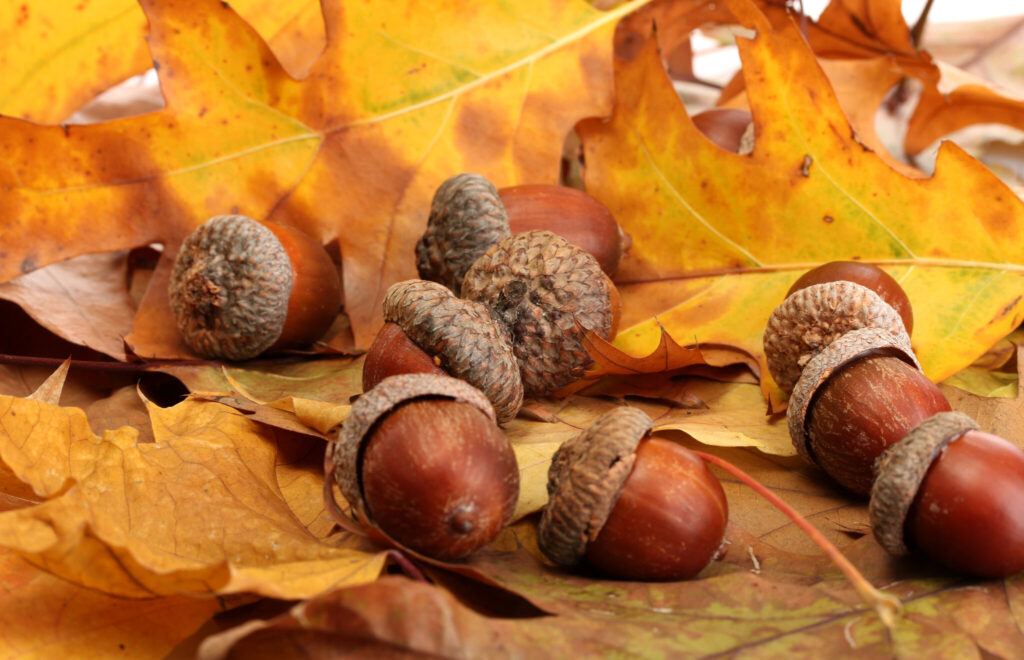
-

 Country Lifestyles2 years ago
Country Lifestyles2 years agoScott & Stacey Schumacher: A Growth Mindset
-

 Country Lifestyles8 years ago
Country Lifestyles8 years agoStyle Your Profile – What your style cowboy hat says about you and new trends in 2017
-

 HOME8 years ago
HOME8 years agoGrazing North Texas – Wilman Lovegrass
-

 Equine1 year ago
Equine1 year agoThe Will to Win
-

 Country Lifestyles5 years ago
Country Lifestyles5 years agoAmber Crawford, Breakaway Roper
-

 Outdoor10 years ago
Outdoor10 years agoButtercup or Primrose?
-

 Country Lifestyles9 years ago
Country Lifestyles9 years agoJune 2016 Profile – The man behind the mic: Bob Tallman
-

 Country Lifestyles8 years ago
Country Lifestyles8 years agoDecember 2016 Profile, Rusty Riddle – The Riddle Way




